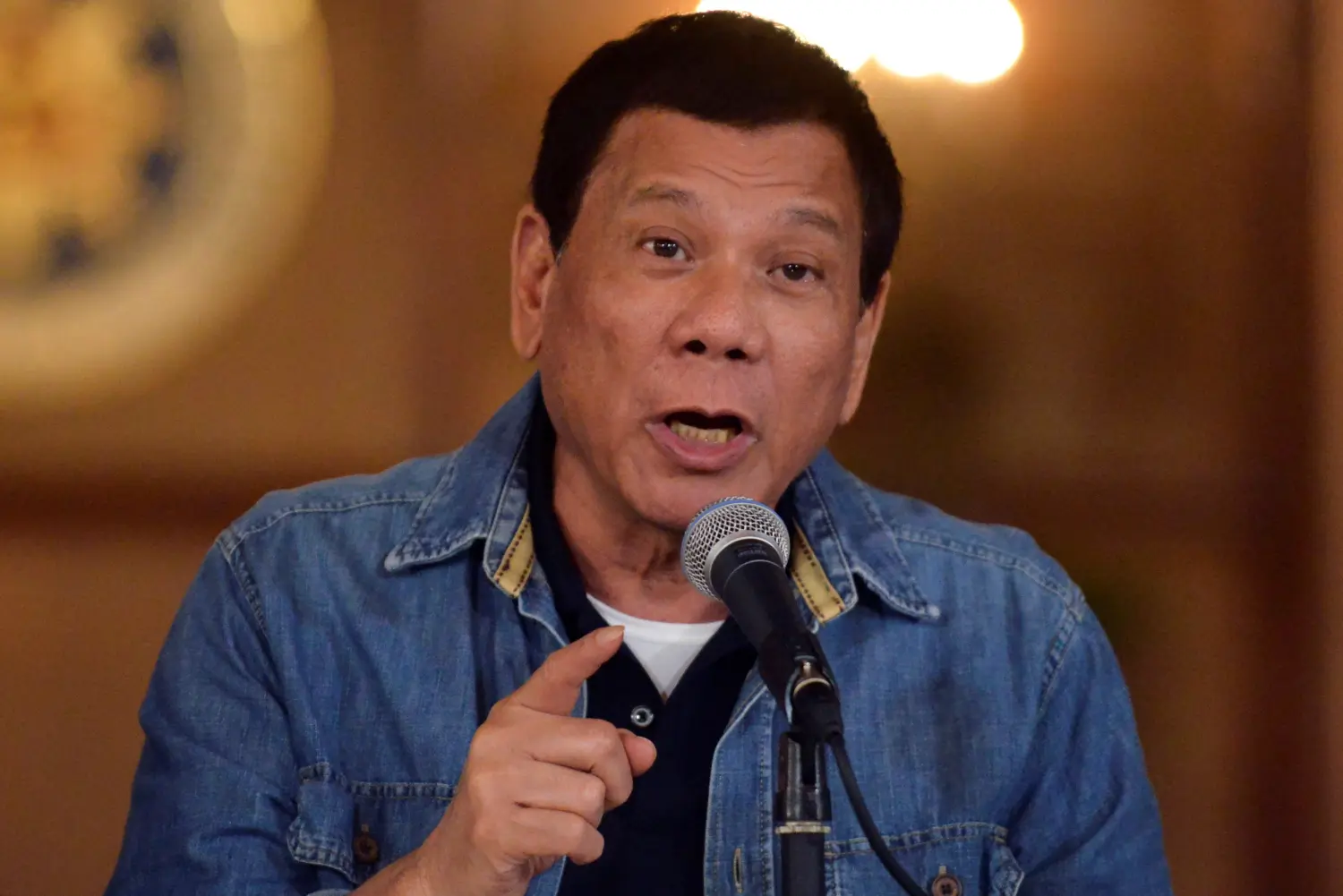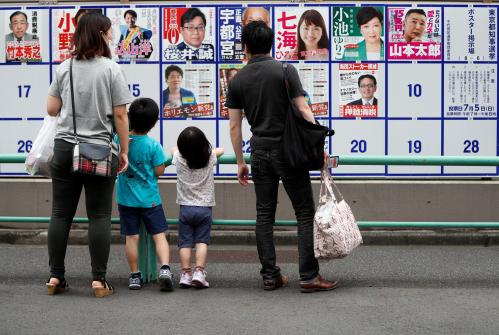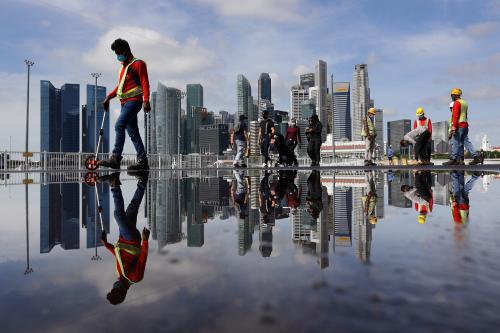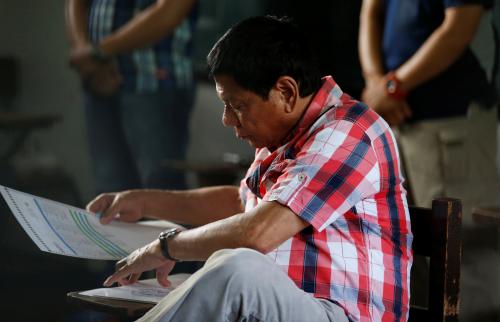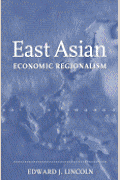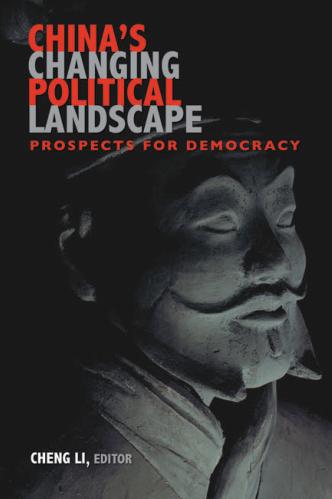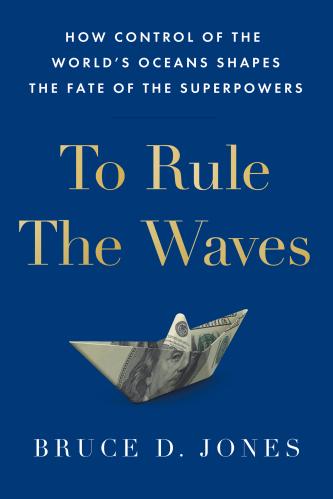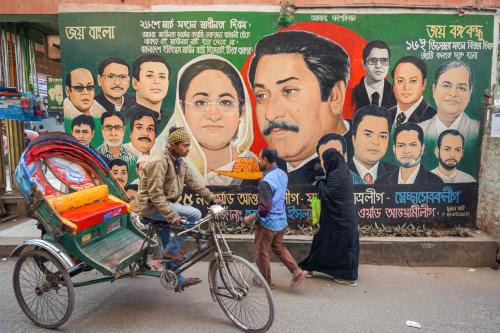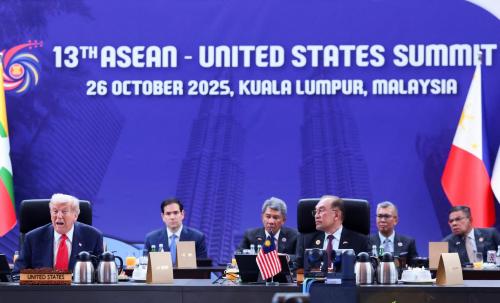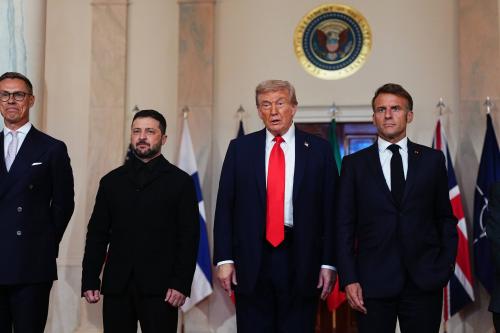Under recent President Benigno Aquino the Philippines had the highest economic growth rates in its modern history and among the highest in fast-growing Southeast Asia. He launched a sincere campaign against corruption, and that campaign’s relative success contributed to growth. Under threat from China in the South China Sea, the Philippines grew closer and closer to the United States and granted the U.S. military increasing access. The country seemed clearly on an upward path of improved growth, democracy, and alliance with the United States.
Then suddenly, in May 2016, the country elected Rodrigo Duterte, who promised to ignore the law and sanction extra-judicial killings of those he believed to be involved in the drug trade. Accused of having backed 700 killings when he was mayor of Davao, he said it was more like 1,700. He predicted 100,000 people would be killed when he became president, with so many dumped into the sea that the fish in Manila Bay would become fat. Court testimony documented 1,800 extra-judicial murders in his first few months as president. Duterte first affirmed and then later denied that as mayor of Davao he had supported a “Davao Death Squad” of 300 executioners. Sworn testimony by one of the members of that squad gave particulars on large numbers of killings.
Duterte quickly reversed the Benigno Aquino presidency’s alliance policy toward the United States. He downplayed the U.S.-supported Philippine legal victory over China on the South China Sea island disputes. Asked how he would respond if President Obama raised the issue of the extra-judicial killings, his emphatic response referred to the president as “son of a whore,” leading Obama to cancel the planned formal meeting. (An informal exchange did occur subsequently.) He launched a gratuitous attack on the United Nations: “[Curse] you, UN, you can’t even solve the Middle East carnage … couldn’t even lift a finger in Africa [with the] butchering [of] the black people. Shut up all of you,” he said. He indicated that he would buy armaments from China and Russia rather than relying on the United States.
What happened? The citizenry reacted against crime, inequality, and widespread hopelessness. But why was there such widespread crime, inequality, and hopelessness in a country that was growing quickly and whose political institutions, including a free press, all U.S. personal freedoms, free elections in which the governing party regularly changes, and one of the most highly developed legal systems in the developing world, are more closely modeled on the United States than those of any other country in the world?
To understand what went wrong, one must dig deep into Philippine democracy and its history.
A facile answer from some U.S. political scientists was “weak institutions.” But the real answer is deeper and more disquieting and includes, along with weaknesses, some of the strongest institutions—those mentioned above—in the developing world. To understand what went wrong, one must dig deep into Philippine democracy and its history.
The outstanding example of a poor country with strong democratic institutions was the post-World War II Philippines; its fate is the template for many others. The United States spent half a century perfecting Philippine democracy. The United States prepared the Philippines for self-governance decades before other colonial powers prepared their colonies. At independence, the Philippines scored higher on indices of development than the colonies of every other country. Filipinos had more roads (per 100 square kilometers), communications, literacy, secondary education, newspaper circulation (per 1,000 inhabitants), steel consumption, electricity consumption, and income than other decolonized nations.1 Manila was the hub of Asia for business and transport, playing the role that Singapore and Hong Kong play today; if an American wanted to visit Hong Kong, Singapore, Malaya, or Thailand, the route lay through Manila’s superior facilities.
Before World War II, middle class Filipino families had Japanese gardeners. When I lived in the Philippines in 1963 to 1964, middle class families had amahs (nursemaid) from impoverished Hong Kong for housekeeping and child care. But by the time I lived in Hong Kong (1985-2001 and 2013-2015), even our secretaries had Philippine maids.
Perhaps even more important in American eyes, and proudly in Filipino eyes, the new country had well-established freedom, democracy, and a modern judiciary. The press was vigorously free: no censorship, no intimidation of reporters, and multiple views. People said whatever they thought. Elections were free, and each successive president was the person who had actually won the most votes. With a U.S.-style two-party system, the two parties alternated in power, demonstrating that the process of campaigns and elections actually was democratic. Church and state were separate, reversing the situation under colonial Spain. The courts were independent and operated on American adversary principles, implementing laws that were either inherited from American democracy or passed by a democratically-elected Philippine legislature. Particularly noteworthy among newly independent countries, the military was firmly subordinate to civilian government. This was the ultimate third world democracy.
While the alternation of parties in power validated democratic elections, it also signaled deep popular dissatisfaction with every presidency.
As in other poor nations, elections gave the elite an overwhelming advantage. In an educated middle-class Western society, elections dispute different paths to common goals. In very poor countries, there is a sharp division between landlords and peasants. Well-organized landlords traditionally got themselves elected to Congress. The peasants on their lands had no ability to organize and assert their interests. They voted as their landlords told them to do, until the point where they became so angry that they joined the communist guerrillas or the Muslim guerrillas. The elite was so confidently entrenched that it had no incentive to invest in modernizing the country; after independence the income tax was the world’s lowest, at 4 percent. There was no possibility of land reform. No impoverished democracy—with the partial exception of Costa Rica—has ever done a serious land reform. As in India there were high quality subsidized institutions of higher education for the elite (University of the Philippines, the Indian Institutes of Technology in India) but the outstanding education that was the U.S. legacy steadily deteriorated for the non-elite. As in India, the Philippines developed world-class hospitals for the elite, but medical care for the bottom of society was drastically inferior.
The finest of the democratic institutions bequeathed by the United States was the legal system. It developed furthest and best because it was Filipinized earlier than other parts of the government.2 A United States governed by lawyers ensured that the Philippine legal profession was highly developed in numbers, in standards of admission to the bar, and in public respect. The pinnacle of the profession was the courts, which were independent. The Philippine Supreme Court, like its U.S. counterpart, had the (frequently exercised) power to review the decisions of the executive and legislative branches. In short, the judicial system had competence, prestige, and power.
What it could not do was to provide justice. In America’s educated middle class society, the citizen at least has some chance of understanding and functioning within the adversary system and the layers of complex rules and precedents designed to ensure a fair trial. In a society that combined extensive poverty with extreme inequality and limited education, the typical citizen had no ability to comprehend the legal system or afford a lawyer for those who did. Most people were landlords or tenants, and the complexity and cost of the system provided an almost complete monopoly of power to the landlord. At the height of the Communist Huk rebellion (1942-1954), Luis Taruc, the Huk leader, derived much of his personal popularity from his simple efforts to mediate between landlords and tenants,3 a task the very sophisticated judicial system was incapable of performing.
The elaborate, tortuous, expensive machinery designed in America to prevent any slight infringement of due process actually ensured injustice for the vast majority of the population.
As the Huk challenge reached its zenith, President Ramon Magsaysay (1953-1957), recognizing the inability of the legal system to deliver justice to the majority of Filipinos, got legislation passed to engage the legal department of the army on behalf of the tenant farmers.4 This redressed the social balance somewhat and changed the tone of relations between government and impoverished citizens, a key initiative contributing to the defeat of the Huks. However, as soon as Magsaysay was gone and the Huk challenge suppressed, the system reverted to its old imbalance. The law allowed the army lawyers to intervene only in certain varieties of lawsuits, and the landlords quickly learned that they could counter a peasant complaint by bringing counter-charges of a kind outside the purview of the Army Judge Advocate. The elaborate, tortuous, expensive machinery designed in America to prevent any slight infringement of due process actually ensured injustice for the vast majority of the population.
The intricate U.S. system was as helpful to criminals as it was to landlords. The U.S. system was designed to protect all the rights of the accused. The principle that someone is guilty until proven innocent translates into a strong preference for the system to err on the side of not risking any conviction of an innocent person, rather than convicting most guilty people. In a poor country where the police had limited resources and limited training, while much of the judicial system tried to uphold U.S. standards of proof, this meant that it was exceedingly difficult to convict a criminal. Particularly in conjunction with rampant elite corruption, this meant that criminality of all kinds was rampant. It was of course particularly difficult to convict powerful, rich criminals, who could afford lawyers as fine as any in the world to do combat with an impoverished judicial system. The country took on an atmosphere of lawlessness.5
In the 1950s, this perfect third world democracy had to be rescued by the CIA from a communist movement that had Manila surrounded. Later, in the 1960s, outrage against the inequality, corruption, crime, and general failure of development built up and eventually led to broad public support, particularly from the middle class, for a brilliant but flawed demagogue, Ferdinand Marcos, who promised to follow the outlines of the Asian miracle economies. He imposed martial law in 1972 and promised to impose discipline, to effect land reform, to build good infrastructure, to create conglomerates like those of South Korea, to collect the guns that were even more pervasive in the Philippines than in the United States, and to reduce crime and inequality. For a while he was famous for building the roads with real cement and filled Philippine society with real hope. But in the end his “disiplina” (signs saying “Disiplina” were posted everywhere) was a way of disarming his opponents. His initially high-quality infrastructure building petered out; his conglomerates were crony monopolies (over 200 of them) rather than fiercely competitive; his land reform turned into a power play6 he emphasized heavy industry rather than labor-intensive industry because it offered more squeeze; and therefore he accelerated the exploitative decline that he had promised to reverse.
Marcos’s chief opponent was Benigno (“Ninoy”) Aquino. Ninoy was politically a disciple of South Korea’s Park Chung Hee. Like most Asian political leaders, and far more than most, he was eloquent in articulating the values of democracy. But he had been a young journalist in South Korea at the beginning of his career and in every conversation I had with him he reverted to an awed description of how, at a time when the Philippines was relatively rich, South Koreans were hungry and the country “had no exports” (his words, frequently repeated). His concrete program for national revival was modeled on Park’s. When I asked him what he needed politically to achieve his goals, he said, multiple times on multiple occasions, “Three years of full power.” He knew that reforms would have to be imposed. (The Asian miracle economies typically take off into high growth three years after new leadership begins to impose reforms.) He would have been a tough leader, as tough as Marcos, and his toughness would probably have earned opprobrium from the West, but in my judgment would have followed through and saved his country from poverty and lawlessness.
Before Aquino returned to the Philippines (from his self-imposed exile in the United States) he spent over three hours with me and my family explaining why he believed he could return and Marcos would not kill him. He said that killing him would be just like the right wing Nicaraguan regime’s killing a Sandinista publisher. “It would cause a revolution, and I would play a bigger role in Philippine history than I ever would alive. Marcos is smart enough to know that.” When Aquino landed in Manila, Marcos was incapacitated and Aquino was assassinated, on the orders of General Fabian Ver, while deplaning. The second commitment to emulate Park Chung Hee’s South Korea died with him.
A broad coalition won the 1986 election for Aquino’s wife, Corazon Aquino, who came to power amid a universal expectation of reform and development. A group centered around Minister of Finance Jaime Ongpin sought to turn the Philippines into the next Asian miracle. I wrote much of the broad strategy. Ongpin searched the world for best practice on everything from bank regulation to civil aviation regulation and sent draft rules and legislation and appointments to President Aquino. In virtually every case, President Aquino’s executive secretary, Joker Arroyo, rejected the reforms in her name and replaced them with patronage political appointments under rules designed to defeat reform. For instance, the new civil aviation rules were rejected in favor of an improperly constituted board dominated by three of Joker’s cronies. A proposed outstanding appointment to run Philippine National Bank was replaced by a Joker crony who had just been served the maximum fine for infringing the bank regulations. Land reform was limited because President Aquino was not about to jeopardize her control and profits from Hacienda Luisita, the vast family sugar plantation. Joker Arroyo was trying to reconstitute the Marcos monopoly system using an institution called the Presidential Commission on Good Government. Gradually the ranks were depleted of reformists. For instance, the reformist minister of transport and communications, Reynerio Reyes, was forced to resign because he had fired one of the president’s relatives for massively defrauding the national shipping line.
Eventually Ongpin asked me to make one last appeal for reform. Using subterfuge to gain a meeting because Aquino was surrounded by officials opposed to reform, I outlined the lessons of the Asian miracle economies regarding what was needed to create a fast-growing economy. She emphatically rejected my appeal and initially refused to criticize Joker Arroyo, whose behavior she acknowledged, although she subsequently forced his resignation. Ongpin, his identity totally defined by his failed effort to modernize his country, subsequently committed suicide. The third effort at creating a miracle economy in the Philippines died with him, killed by patronage politics. Even Corazon Aquino (wife of Ninoy), the most allegedly idealistic Filipino politician in modern Philippine history, Magsaysay excepted, saw elections not as an opportunity to grow the national economic pie but as a competition over who was to eat the pie.
There followed a series of corrupt, elitist presidencies, punctuated by the election of Joseph Estrada, a corrupt, foul-mouthed, womanizing actor whom the national majority saw as a potential antidote to the oppressive elitism. The majority supported a president who did not see government as of the elite, by the elite, and for the elite. Quickly an elite coup, applauded by the United States, overthrew Estrada. The replacement government subdued Estrada by threatening him with the death penalty for involvement in a form of illegal gambling called jueteng. As every knowledgeable person in the Philippines knew, the new President Arroyo was supported by a family fortune built by her husband as a kingpin of jueteng in Bulacan Province. Her presidency ended in corrupt disgrace. U.S. support of the corrupt elite over the popularly elected president did not go unnoticed.
The issues are exactly the ones that brought Marcos to dictatorial power in 1972 and Estrada to power a generation later.
The most successful Filipino presidency of modern times was that of Corazon Aquino’s son, Benigno Aquino III, who pursued an anti-corruption drive and achieved economic growth rates higher than any other Philippine presidency. But he too was a member of the elite. When the Supreme Court ruled that Hacienda Luisita was subject to land reform, he had the chief justice impeached, employing underhanded methods to get the needed legislative support. As always, the elite benefited from the growth, but the majority of the population continued to live as it had decades earlier. According to one analysis, 40 families captured 76 percent of the growth benefits while 25 million Filipinos continued to earn less than $1 per day.7
Again the people erupted in anger and elected a replacement, Rodrigo Duterte, who promised bloodshed and extra-democratic measures. Interestingly, his support is strongest among the educated middle class. Joshua Kurlantzick of the Council on Foreign Relations, summarizes the problem exactly as a Ferdinand Marcos advocate would have done in 1971: “Duterte’s image rests on a popular perception…that he is a blunt-talking strongman who will be able to resolve longstanding political challenges—corruption, high inequality, business cartels in many sectors, violent crime, the continuing banditry and insurgency in the south—more effectively than politicians who follow democratic norms and institutions.” The issues are exactly the ones that brought Marcos to dictatorial power in 1972 and Estrada to power a generation later. Meanwhile, Imelda Marcos, widow of the late dictator and the most corrupt figure in Philippine history, has served repeatedly in the national legislature. The second highest number of votes for vice president in 2016 went to Ferdinand (“Bongbong”) Marcos, Jr. Duterte promised to move the elder Ferdinand Marcos’s body to a heroes’ cemetery. To the shock of this writer, who nearly lost his life protecting Cory Aquino against Marcos, large numbers of middle class Filipinos now look back to the Marcos years with reverence.
The cycle of extractive democracy seems inexorable, even in the freest, most carefully constructed third world democracy the United States has ever supported. The pattern is replicated in countries like Thailand, where politics is a struggle between the family of a billionaire who made more billions after buying an election, then impaired the future of what had been the world’s most dynamic sugar industry through an outrageous patronage scheme, and an urban elite that has traditionally neglected the rural areas.
What has happened in the Philippines poses a challenge not just to U.S. policy toward the Philippines but more broadly to the sacred assumption that transplanting U.S. institutions can produce peace and prosperity in any society at any level of development, with any pattern of social division. In societies at the Philippine-Thai-Cambodian level of development, Western-style electoral democracy legitimizes, perpetuates, and often enhances ruthless exploitation, corruption, and crime. Institutions—elections and Western courts—that in educated middle class societies ensure a modicum of political influence and fairness for the poor have the unintended consequence in these societies of legitimizing further oppression. In tribal societies at that level of development, competitive elections often deepen tribal conflicts. When George W. Bush and Dick Cheney proclaimed victory after holding elections in Iraq and Afghanistan, they celebrated on the assumption that democratic elections would automatically lead to peace, mutual respect, and prosperity. Likewise, when Hillary Clinton was celebrating the glories of the Arab Spring, those situations did not work out as expected.
In societies at the Philippine-Thai-Cambodian level of development, Western-style electoral democracy legitimizes, perpetuates, and often enhances ruthless exploitation, corruption, and crime.
The pattern of democracy where a small elite uses elections to legitimize ruthless extraction of resources from the overwhelming majority of the citizens, and sends the country into a spiral of relative decline, explains the rise of Marcos, Estrada, and Duterte. What about the turn against the United States?
Philippine society includes a deep reservoir of friendship and respect for Americans. On balance, American colonial rule of the Philippines was remarkably benevolent. Moreover, the two societies are profoundly interdependent. The U.S. hospital system could hardly function without Filipino nurses. Filipinos who migrate to the United States are among the most upwardly mobile of any social group. The United States has protected the Philippines, and Filipinos have contributed pervasively to the U.S. Navy and much else. Americans who live in the Philippines or just visit luxuriate in Filipino hospitality. The importance of Filipino mass loyalty to the United States in World War II, and the importance of Subic Naval Base and Clark Air Base during much of the Cold War, cannot be overstated.
What is the problem then? Actually, loyalty and friendship cohabit with three problems: elitism, dependence, and overemphasis on the military.
In a country divided between masses and a tiny elite, Washington always sides with the elite. After World War II, MacArthur banned reformist communist guerrilla leader Luis Taruc from taking the legislative seat to which he was elected. At the time, any patriotic American, including myself, would have done the same. But with 20:20 hindsight it was a mistake to welcome collaborators like Marcos and ban anti-Japanese reformists like Taruc. (The bloody-minded urban intellectual communists were different.) When Marcos was bankrupting his country and ruthlessly repressing an opposition that now included the majority of the country, Vice President Bush stood on the tarmac at Manila airport and praised Marcos as a democrat. President Reagan and CIA Director William Casey were personal friends of Marcos. An August 1985 conference on Philippine policy (I was a keynote speaker) began with a directive from President Reagan that Marcos had to be part of any solution to the Philippine problem. (The conference came to a different conclusion.) Reagan even responded to Marcos’s stealing of the 1986 election by saying “both sides cheated;” Aquino’s emphatic response to that proved to be the turning point in U.S. support of Marcos, but it was too late. Likewise, the United States responded to popular support of Estrada by backing the Arroyo coup.
Ironically, the benevolence of much of U.S. policy has left the Philippines dependent.
Second, ironically, the benevolence of much of U.S. policy has left the Philippines dependent. The U.S. alliance has meant that, until the recent issues with China, Filipinos have never had to confront foreign military threats. The United States has also solved the most dangerous internal problems. CIA intervention defeated the Huks. Without protection organized by an American, Cory Aquino would have been dead before the election.8 Without political support from D. H. Sawyer, her campaign would have died even earlier.9 All this was done with the best of intentions and mostly good results. But along with gratitude it has elicited resentment of a residual neo-colonial dependency. The most famous sentence of Manuel Quezon, President of the Commonwealth of the Philippines from 1935-1944, was the passionate and prescient declaration, “I would rather be governed like hell by Filipinos than like heaven by Americans.” Neo-colonial complacency has meant that the Philippine elite did not have to respond to development challenges the way Park Chung Hee in Korea and Lee Kwan Yew in Singapore did. So they didn’t respond. The benevolent U.S. embrace has been welcome and smothering in equal measure. Under Benigno Aquino, Americans reaped the welcome. Duterte’s constituents respond to the smothering.
Finally, also ironically, overemphasis on the military drastically impairs Americans’ military access to the Philippines. Clark Air Base and Subic Naval Base always had Filipino opponents, but those opponents were a relatively isolated minority. The U.S. bases had always been part of a package Philippine relationship that comprised economic development, institution building, and security—overall a profoundly nurturing relationship. That changed under Reagan. The Reagan administration’s policy focused on renewing the bases and as a corollary on being close to Marcos. Although this also reflected the personal friendships of Reagan and Casey with Marcos, everyone knew that this policy was about bases renewal.
Washington’s strong support for Marcos came at a time when Marcos’s cronies were bankrupting the country and destroying the livelihoods of tens of millions. To take just one example, the sugar monopoly under Marcos’s old college roommate, Roberto Benedicto, first reduced the relatively prosperous areas of the central Philippines to penury. Then, when global sugar prices plummeted, the sugar monopoly held options that could have saved a whole generation, but Benedicto sold them for his personal account, plunging many millions into hunger and malnutrition while making himself extraordinarily wealthy. For the first time in modern history, Filipinos, including what one might call the leading edge of the elite and the clergy, came to see U.S. policy as focused on regional military priorities at the expense of caring about Filipinos. By the time a changing policy and a new ambassador, the brilliant Stephen Bosworth, appeared, it was too late. Richard Armitage subsequently made a magnificent but futile effort to renegotiate the bases agreement. Making the bases more important than Filipinos led a critical mass of elite Filipinos to reject the bases.
The dilemma of overemphasis on the military aspect of the relationship has persisted. Since the turn of the century, the military aspect has overwhelmingly dominated. The U.S. military has been very anxious to involve itself in guerrilla warfare in the southern Philippines, because of some affiliations with al Qaeda and other terrorist organizations, and to restore military access rights as part of its regional competition with China. The developmental aspects have fallen away, not because of any military fault, but because Congress has stripped away the resources, globally, for diplomacy and development. Many Filipinos feel they are being used. On a scale from wife to neglected mistress, more and more Filipinos feel they are on the neglected mistress end.
The military focus is particularly sensitive in the southern Philippines where Duterte was a mayor. When the United States seized the Philippines from Spain in 1898, the most brutal fighting, still vividly remembered, took place in this region. The Moro guerrillas were famous for continuing to charge after they had been fatally shot and killing the American soldiers with bolos (machetes). In response, the United States invented the Colt .45, a weapon that would knock down the guerrillas before they could charge. The southern Philippines feels neglected. Elite versus mass resentments, local versus central resentments, military versus civilian resentments, and Muslim versus Christian resentments converge here in an area replete with jungled mountains and weak administration for dissidents to exploit.
Duterte can compromise with China, but he can’t give away too much and still remain president.
For now all these resentments and issues have converged in a way that shocks U.S. policy. But the wheel will turn. The reservoir of good will for the United States remains. Duterte’s murderous policies will encounter resistance and limits. Duterte can compromise with China, but he can’t give away too much and still remain president. The United States should eschew any effort to overthrow him. Perpetuation of the neo-colonial relationship will only lead to bigger problems.
This could even be an opportunity. The U.S.-China relationship has become sidetracked from the great issues of mutual concern—trade, investment, environment, climate change, terrorism, and nuclear proliferation—to a dangerous confrontation over minor rocks and reefs. If Duterte can negotiate a deal that the Philippines can live with, Filipinos may get what they need, China may be able to compromise and still proclaim victory at home, and this could create a precedent for compromises elsewhere. In turn this could deescalate a situation where China is dangerously overextended but cannot back down for domestic political reasons while the United States risks military conflict over rocks that the American people will not die to defend. The danger comes more from overhyping on both sides, not from vital interests of either party. Neither side feels it can allow the other to “win” and on current trends both could lose big. Paradoxically, a murderous thug in Manila might offer a way out of this dangerous box.
-
Footnotes
- See Fred R. von der Mehden, Politics of the Developing Nations (Englewood Cliffs NJ: Prentice-Hall, 1969): 12-18. The author ranks the indices according to the colonial power. Since the U.S. had only one colony, namely the Philippines, the U.S. column always presents the Philippine numbers. Von der Mehden’s indices date from the time of independence of each country; since the Philippines became independent long before the others, his ranking greatly underestimates the superiority of the Philippines.
- For a history of the development of Philippine government institutions, see Onofre D. Corpuz, Bureaucracy in the Philippines (Manila: Institute of Public Administration, 1957). On the importance of the early Filipinization of the judiciary see p. 164.
- This comment is based on personal research. I spent the summer of 1967 doing interviews about the Huks. I spent over 30 hours interviewing Taruc in jail, along with Huk leaders who were not in jail, the top military leaders, scholars, reporters, and many others. After Taruc was released from prison he spent much of his time advising tenants on their problems; in the Marcos era he did so as an employee of the Department of Agrarian Reform. I kept in touch with him whenever I was in the Philippines. CIA operative Edward Lansdale, correctly, refers to Taruc as an “idealist.” See Edward Lansdale, In the Midst of Wars (New York: Harper and Row, 1972): 6. Taruc’s idealistic reformism did not, however, deter the Huks from many acts of bloody brutality, including terrorist attacks on clerics and church attendees.
- Like many of Magsaysay’s initiatives, this was initiated by the great CIA agent Edward Lansdale. Magsaysay himself was a CIA invention. President Truman ordered President Quirino, in a message passed through Quirino’s Press Secretary, Juan Orendain, to appoint Magsaysay Secretary of Defense, and the U.S. supported him from there to become president. The Philippines’ highly developed U.S.-style institutions could not have defeated the Huks otherwise.
- My research assistant sought official crime statistics data but was told that it was unavailable unless I paid a bribe. I would have willingly paid a fee, but since the word bribe was used in the conversation I’ve had to do without the supportive data.
- For an account of the Marcos land reform, see William H. Overholt, “Land Reform in the Philippines,” Asian Survey, 16: 5 (May, 1976), 427-451.
- See the data reported by a former planning minister to an Agence France Press report in “Philippines’ elite swallows new wealth,” http://business.inquirer.net/110413/philippines-elite-swallow-countrys-new-wealth. A more detailed account is Jillian Keenan, “The Grim Reality Behind the Philippines’ Economic Growth,” The Atlantic, May 7, 2013, http://www.theatlantic.com/international/archive/2013/05/the-grim-reality-behind-the-philippines-economic-growth/275597/. The data on the number of poor can be verified from national accounts. The 40 families number, although credible and from a credible source, needs scholarly replication.
- Faced with two threats of assassination against her and one of incarceration, Cory Aquino’s brothers asked me to solve the problem. Through a British firm where I sat on an advisory board, I brought in the retired SAS colonel who had created Saddam Hussein’s personal security system and the former head of the Australian Secret Intelligence Organization. Separately, I brought back then-ambassador and former General Ileto from Thailand to mobilize military support against illegal orders; Ileto became Aquino’s Secretary of National Defense, and the general who affirmed my bona fides to Ileto became her intelligence chief. We solved the problems, and the British firm remained key to Cory’s security for six months into her presidency, after which the CIA intervened and insisted that Israel’s Mossad replace it.
- Marcos, supported by the Reagan-recommended firm Black Manafort & Stone (which had a $1 million contract), was trashing Aquino in the polls through a campaign designed to brand her as a communist. A U.S. golf course developer had supported a D.H. Sawyer team to go to the Philippines and I, familiar with their work from a John Glenn campaign, brought them into Aquino’s inner circle with an initial contract worth only $15,000. They turned around the polls in ten days. While D.H. Sawyer handled the media I coordinated some other aspects of the campaign.
The Brookings Institution is committed to quality, independence, and impact.
We are supported by a diverse array of funders. In line with our values and policies, each Brookings publication represents the sole views of its author(s).
